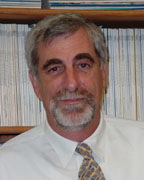 Edward Riley, Ph.D., is a world-renowned expert on Fetal Alcohol Syndrome (FAS) and Fetal Alcohol Spectrum Disorders (FASD). During his more than 35 years as a psychologist and researcher, Dr. Riley has significantly enhanced our understanding of how prenatal exposure to alcohol can affect the developing embryo and fetus.
Edward Riley, Ph.D., is a world-renowned expert on Fetal Alcohol Syndrome (FAS) and Fetal Alcohol Spectrum Disorders (FASD). During his more than 35 years as a psychologist and researcher, Dr. Riley has significantly enhanced our understanding of how prenatal exposure to alcohol can affect the developing embryo and fetus.
Dr. Riley’s research focuses on changes in normal brain development in the embryo and fetus that result from prenatal alcohol exposure, as well as on interventions that may moderate these effects. He uses a multidisciplinary approach, which incorporates behavioral assessments as well as neuropsychological testing and brain imaging. He studies deficits in executive functioning and motor behaviors, as well as a variety of neuropsychological impairments. In addition, he uses magnetic resonance imaging techniques and correlational studies to examine the relationship between alterations in brain structure/function and behavioral changes. NIAAA has funded Dr. Riley’s research continually since 1978.
Dr. Riley leads the Collaborative Initiative on FASD funded by NIAAA, which is a multi-site international consortium studying FASD. One of the goals of this project is to use state-of-the-art technology to enhance the diagnosis across the range of outcomes following prenatal alcohol exposure. CIFASD has assessed children in Russia, Ukraine, South Africa, Finland, Italy, South Korea, Australia, Northern Ireland, the United Kingdom, and the United States.
When Dr. Riley began working in the field, he never imagined he would spend his entire career researching Fetal Alcohol Spectrum Disorders. “I thought it was a simple problem with a simple fix. I couldn’t have been more wrong,” he has said.
Dr. Riley completed his B.A. in Psychology at Rutgers University, and his M.Sc. and Ph.D. in Psychology at Tulane University. He began his career as an Assistant Professor in the Department of Psychology at State University of New York at Albany in 1975. In 1988, he moved to the Department of Psychology at San Diego State University.
Today, Dr. Riley is Distinguished Professor of Psychology at SDSU, and also serves as the Director of SDSU’s Center for Behavioral Teratology.
He is the Editor of the Handbook of Behavioral Teratology, two other books on prenatal drug exposure, and more than 250 scientific articles.
Dr. Riley’s leadership also extends to many prominent national and international organizations in the FAS field. For example, he was appointed by the U.S. Secretary of Health to serve as the Chair of the U.S. National Task Force on FAS/FAE from 2000 to 2004. He has also served as President of the Research Society on Alcohol, RSA’s Fetal Alcohol Study Group, and the Behavioral Teratology Society. He is the incoming President of the International Society for Biomedical Research on Alcohol.
Currently, he serves on the NIAAA Advisory Council, as well as on the Expert Panel for the SAMHSA FASD Center for Excellence, and until recently, on the Behavioral and Social Advisory Council of ABMRF/The Foundation for Alcohol Research.
Dr. Riley has received many prestigious awards, including the Outstanding Researcher Award in 2005 from the Research Society on Alcoholism, and the Fetal Alcohol Syndrome Research Recognition Award in 2004 from the National Organization on FAS (NoFAS) for outstanding research and dedication to the field of FASD. This past year, he received the Research Society on Alcoholism 24th Annual Seixas Award for Distinguished Service.
Dr. Riley has called his career “a fantastic endeavor,” made even more meaningful by the personal satisfaction he continues to experience “from interacting with the kids who have been exposed and their dedicated and supportive families.”

